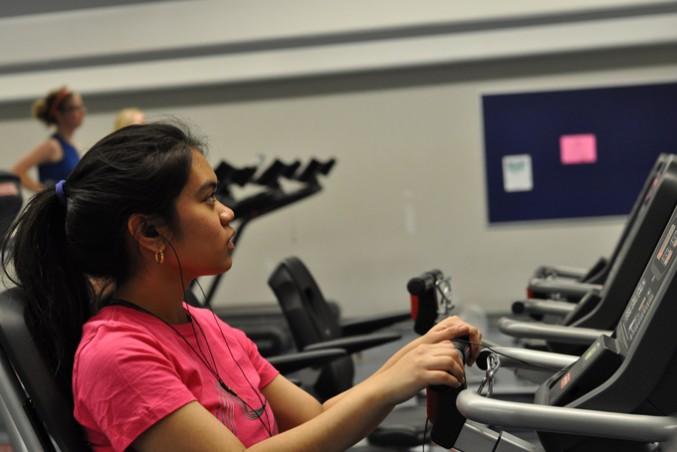By Emma Kimmerly
It was 11:59 p.m.; the night’s events are a little blurry, but you know one thing for certain. When that clock struck midnight, you were supposed to be a brand new person. “New Year, new me,” was your mantra, and you made sure all of your Instagram followers knew it. You were a better person — all you needed was a fresh start you told yourself.
Yeah, right.
Resolutions come in all shapes and sizes, but there are some that make yearly returns, no matter how often they fail. Case in point: even though 2014 seemed to have an ‘all about that bass’ attitude, body image resolutions were inevitable.
The most common student resolutions focus on physical health and appearance, Ryerson psychology professor Stephanie Cassin says. “[They’re] Wake up earlier, lose weight, and go to the gym.”
“When you’re a student, you’ll eat KD three nights in a row and right after Christmas you’re like, it’s a New Year, it’s time to lose weight,” says Tori Phillips, a third-year student in Early Childhood Studies.
She made three resolutions this year; go to bed earlier, actually do course readings, and go to the gym more. She used to make more than three, but Phillips admits they “don’t usually stick.”
December holidays can cause a month of overindulgence, which Cassin says helps guilt people into making the same health-related resolutions time and time again. “January is almost like boot camp,” she said.
But those making boot camp body resolutions generally have commitment problems, as their motivation usually only survives two to three weeks.
“Most people try to do too much too soon, and try lifting 50 pounds their first time at the gym,” Cassin says. “They don’t build up to it, instead they do the opposite.”
She says these common ‘get-fit-fast’ resolutions are due to hindsight. Students use January as a time to reflect on last year’s mistakes, thinking this year, resolutions will stick.
“People tell themselves that last year wasn’t a really good time to make changes because of a family issue, or something else. But they think this time, I’ll do it.”
Yet, Cassin says people fail to set long-term goals, and therefore have to keep hitting the reset button on their short-lived resolutions.
So if these common goals get broken as often as they’re made, making them at all may be pointless. At least that’s how Onur Akgul, a second-year politics and governance student feels. “I actually didn’t make one this year,” he says.
Akgul thinks people make resolutions because they seem easy at the time, but plans aren’t made past a “short-term reference of mind.”
But there’s hope: if you change your perspective you might possibly succeed, according to Cassin.
She suggests when choosing a resolution like losing weight, students should try modifying it to be more positive instead of self-shaming. “Instead of saying I’m not gonna eat any cake, say when I eat cake it’ll be in a social environment — instead of when I’m home alone watching The Bachelor.”
Better yet, choose attainable resolutions that can be incorporated into your busy lifestyle. A successful example of Cassin’s was when she decided to listen to music on her downtime instead of watching TV. “It’s been pretty helpful in spirit of framing things in a more positive way,” she says. “Instead of watching less TV, it’s listen to more music.”
And of course keep in mind you don’t need a ball drop to start fresh on the right path.












Leave a Reply